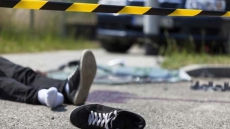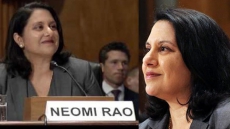Indian-origin peers in the House of Lords have initiated a “historic” debate on the Jallianwala Bagh massacre in April 1919 during the British Raj, to be held next Tuesday.
“Commemorating the 100th anniversary of the Amritsar massacre”, initiated by Lord Meghnad Desai and Lord Raj Loomba, will take place in the main chamber of the Upper House of the UK Parliament and include around nine speakers during what is listed as a “short debate”.
Both Desai and Loomba are members of the newly-formed Jallianwala Bagh Centenary Commemoration Committee, set up to mark 100 years since the tragic event.
“This is a historic moment as the centenary of the massacre falls on April 13, 2019. The debate proposes discussing the Jallianwala Bagh massacre in detail, as well as the British government’s plans to commemorate the centenary,” said a statement from the Jallianwala Bagh Centenary Commemoration Committee (JBCC).
“This is the first time in 100 years that there will be a full debate on Jallianwala Bagh. The last time was in July 1920, when the House of Lords, through a vote, condoned the actions of Brigadier General Dyer who killed more than a thousand peaceful protestors at Jallianwala Bagh on 13th April, 1919,” the statement noted.
Historical records claim that Dyer had fired on the Baisakhi gathering without warning and continued to fire for 10 minutes even as they were trying to escape, while he blocked the main exit with his soldiers and armoured vehicles.
In their role as JBCC members, Desai and Loomba have also written a letter to British Prime Minister Theresa May requesting an apology for the incident.
Previously, former British Prime Minister David Cameron had defended a decision to not deliver a formal apology for the Jallianwala Bagh massacre during a visit to Amritsar in February 2013.
“I don’t think the right thing is to reach back into history and to seek out things you can apologise for. I think the right thing is to acknowledge what happened, to recall what happened, to show respect and understanding for what happened,” Cameron had said at the time.
The JBCCC, chaired by businessman and philanthropist Sardar Balbir Singh Kakar, is made up of a number of Indians and non-resident Indians (NRIs) including Lady Kishwar Desai, diplomat Navtej Sarna and British MP Virendra Sharma.
Along with the Arts and Cultural Heritage Trust, the committee has been supporting the Partition Museum at the Town Hall in Amritsar, near Jallianwala Bagh, to produce and install a detailed exhibition on the massacre titled ‘Punjab under Siege – the Jallianwala Bagh Centenary (1919-2019)’.
This exhibition will travel through UK cities of London, Manchester and Birmingham in April, with the help of Manchester Museum.
“There are also requests to send the exhibitions to various cities in India and around Punjab. The exhibition tells the story of massacre through its impact on people’s lives, and focuses on the fact that this atrocity was one part of much larger colonial oppression in Punjab, that lasted for months, even years, and left a grievous wound upon the psyche of Punjab,” the JBCC said.
The lead up to the Jallianwala Bagh centenary year has also seen a UK Opposition Labour Party drive in favour of colonial history being made a compulsory part of the curriculum in schools across Britain.


